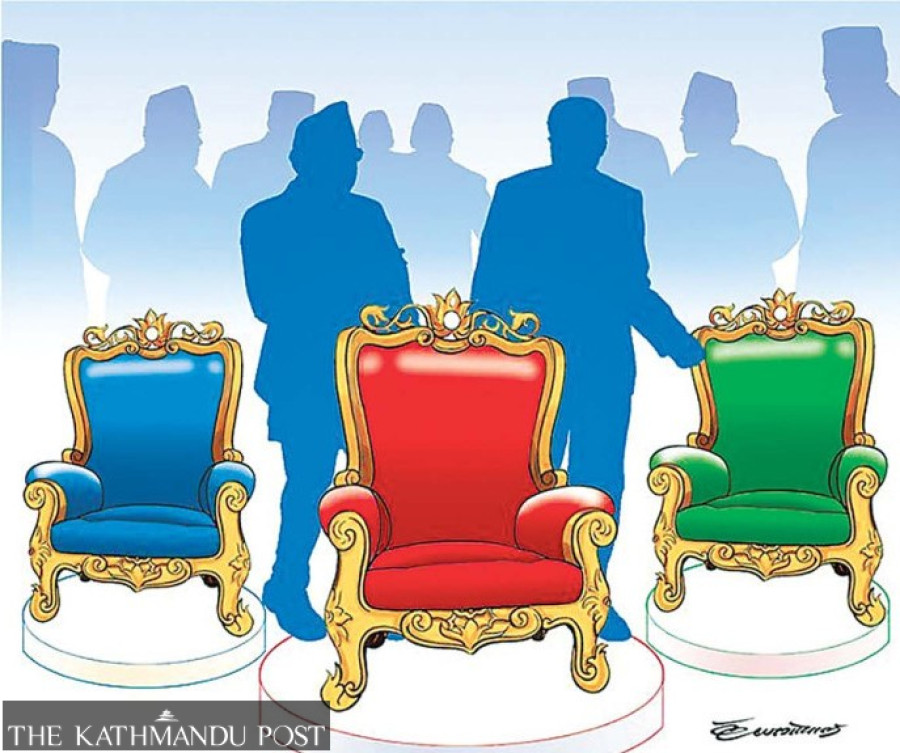Editorial
Have wings, won’t fly
Sister wings of political parties became recruitment centres for cadres than bodies for collective bargaining.
During the dark days of the Panchayat rule, political parties were banned. The underground parties carried out political activities through their above-ground sister wings like student and teacher associations in universities and colleges. Their peasants’ wings had a big role in sowing the seeds of democracy in the country. With the advent of democracy in 1990, these informal mechanisms also took a more concrete shape. It made sense too. Who could better articulate the collective concerns of farmers than farmer unions? Ditto with labourers, women and youths. That at least was the idea. But over time these sister wings of political parties became more recruitment centres for cadres than bodies for collective bargaining for the constituencies they supposedly represented. An intense, unhealthy competition soon ensued among senior leaders to get those close to them elected to these bodies.
Among Nepal’s established parties, the Nepali Congress is perhaps saddled with the most dysfunctional sister wings. These wings remain without office-bearers a year and half after the party’s general convention even though the party statute requires them to be given full shape six months from the convention date. As in other old parties, there are a legion of these bodies in the Congress: the Nepal Mahila Sangh (for women), the Nepal Tarun Dal (for youth), the Nepal Student Union, the Nepal Bhutpurwa Sainik Sangh (retired army officials), the Nepal Dalit Sangh, to name just a few. Another 48 party departments remain vacant. Things are a little better in the CPN-UML, the main opposition. The party at least fills its sister wings on time, but they are increasingly ineffective—and often disruptive and anarchic. Student wings of political parties often disrupt studies on partisan demands, padlock university departments and even beat up teachers. Likewise, teachers who are unionised under various parties spend more time in political gatherings than they do in the classrooms.
This brings up the question of the continued utility of these sister concerns. In the new open political culture, the parties no longer need them to carry out political activities by proxy. Nor do these wings do much for the improvement of their affiliate sectors. Time has come to overhaul or even do away with many of these organisations. Recent elections threw up plenty of successful examples of the lateral entry of politicians, most notably in the Rastriya Swatantra Party. They showed that in electoral politics long-time political affiliation can sometimes be a burden rather than a boon. The RSP leaders say they do not need sister wings whose activities have traditionally only tarnished the image of their mother parties.
Even though the emergence of new outfits has created some panic among the old parties, they don’t seem to have internalised the need for change. Top leaders still hold on rigidly to their factions and want to appoint as many of their own in sister concerns—or leave them without officials. Interestingly, in the recently completed Congress Central Working Committee meeting, there was zero discussion on the utter neglect of these sister concerns. Top leaders in the meeting rather spent more of their time criticising each other. The sister wings of political parties must be in line with the changing needs of the time. Unless they can be made more meritocratic, inclusive, and allowed to function with a high level of autonomy, they will soon be irrelevant.




 18.12°C Kathmandu
18.12°C Kathmandu














